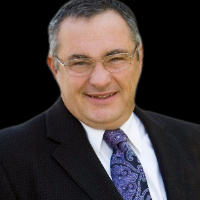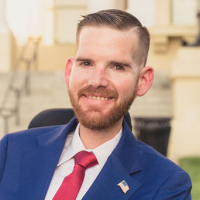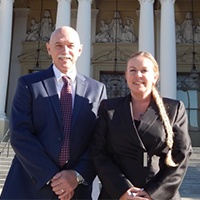San Bernardino Criminal Lawyer, California
Sponsored Law Firm
-
 x
x

Click For More Info:
-
Orange County Criminal Attorney Law Firm
4000 MacArthur Blvd Suite 621 East Tower Newport Beach, CA 92660» view mapCriminal Defense Proudly Serving Orange County
You need an attorney with criminal defense knowledge who will vigorously protect your rights and interests.
800-956-1140
Michael Anthony Scafiddi
✓ VERIFIEDMichael Scafiddi is a practicing attorney in the state of California. He received his J.D. from California Southern Law School in 1996. He currently p... (more)
Jerald Scott Bennett
✓ VERIFIEDJerald Bennett is a practicing lawyer in the state of California. He received his J.D. from McGeorge School of Law, University of the Pacific. He curr... (more)
Andrew James Wallace
✓ VERIFIEDAttorney Andrew Wallace is based in Southern California, and he takes great pride in serving his community by providing superior legal services. Andre... (more)
Laurel Alexandra Buchanan
✓ VERIFIEDLaurel Buchanan is a partner at Decker and Buchanan Law which focuses on Civil matters including Business Law, Real Estate Law, and Personal Injury. T... (more)
Michael J. LaCilento
✓ VERIFIEDThe Law Offices of Michael J. LaCilento is a well-established law firm located in Corona, CA that provides a wide range of quality, cost-effective leg... (more)
FREE CONSULTATION
CONTACTFREE CONSULTATION
CONTACTMichael J. Kowalski
FREE CONSULTATION
CONTACTFREE CONSULTATION
CONTACT Michael Holmes Newport Beach, CA
Michael Holmes Newport Beach, CA AboutOrange County Criminal Attorney Law Firm
AboutOrange County Criminal Attorney Law Firm Practice AreasExpertise
Practice AreasExpertise






